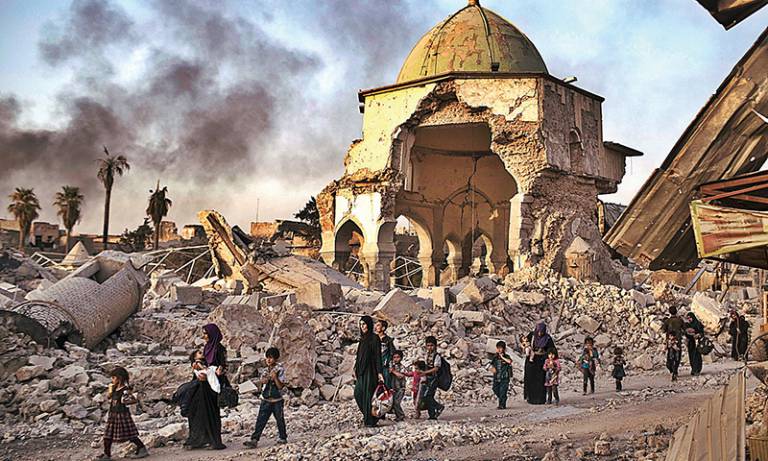Humanitarian Wars, Syria, and the Struggle for Ethical Order
13 February 2018, 5:30 pm–7:00 pm

Event Information
Open to
- All
Organiser
-
The Bartlett Development Planning Unit
Location
-
DPU 101, 34 Tavistock Square, WC1H 9EZ
By 2005, when the UN General Assembly passed resolution 60/1, affirming that states had a collective responsibility to protect civilians from mass murder, the enthusiasm for coercive 'humanitarian intervention' was already in decline. Since then, the UN Security Council has not invoked the Responsibility to Protect to sanction a single ground intervention, despite, most obviously, the death of more than half a million people in Syria since 2011.
Reflecting on the long history of humanitarian intervention as a practice and doctrine, Juliano Fiori will argue that humanitarianism (including military activities carried out in its name) has been an important instrument in the establishment of ethical order since the mid-nineteenth century, adapting in accordance with geopolitical developments and strategic design. The clear shortcomings of humanitarian norms and practices in response to the Syrian war, then, do not, as some commentators have suggested, signal the death of humanitarianism. Rather they are demonstrative of the struggle for a new ethical order through which humanitarianism will be redefined.
Speaker Bio:
Juliano Fiori is Head of Studies-Humanitarian Affairs at Save the Children, working primarily on the politics and ethics of humanitarian action. In 2016, the Humanitarian Affairs Team published a couple of short books on humanitarian effectiveness. And in collaboration with the DPU, they have recently published a collection on refugee self-reliance in cities.
Juliano is a Visiting Researcher at the Federal University of Rio de Janeiro with the Poder Global Research Group. And he is an Honorary Research Fellow at Manchester University’s Humanitarian and Conflict Response Institute.
Prior to joining Save the Children in 2012, Juliano worked for a number of years on conflict and development with think tanks, academic institutions, NGOs, the UN, and as an independent consultant.
 Close
Close

